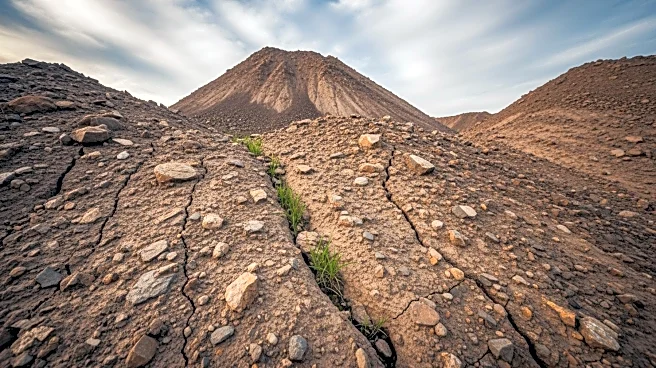What's Happening?
New research by T&E and Earthworks highlights significant weaknesses in global mining waste legislation. The study benchmarks mining waste rules in six countries against the Safety First guidelines, revealing gaps in technology use and tailings facility
closure requirements. Brazil is noted for its strong legislative framework, including a ban on upstream dams and stringent monitoring requirements. The research calls for reforms in mining waste legislation worldwide, urging the US Congress to update the 1872 mining law and the European Commission to revise the EU Extractive Waste Directive. The study emphasizes the need for financial assurance and stricter regulations to protect communities and the environment.
Why It's Important?
Mining waste management is critical for minimizing environmental harm and ensuring community safety. The research underscores the need for robust legislation to address the risks associated with mining waste. By advocating for reforms, the study aims to align global practices with the Safety First guidelines, enhancing environmental protection and reducing the impact of mining activities. The call for legislative changes in the US and EU highlights the importance of updating outdated laws to reflect current environmental standards and technological advancements.
What's Next?
Governments worldwide are expected to review and potentially reform their mining waste legislation in response to the research findings. The US Congress may consider revising the 1872 mining law, while the European Commission could update the Extractive Waste Directive. Stakeholders, including environmental groups and industry leaders, may engage in discussions to promote best practices and ensure compliance with the Safety First guidelines.

















